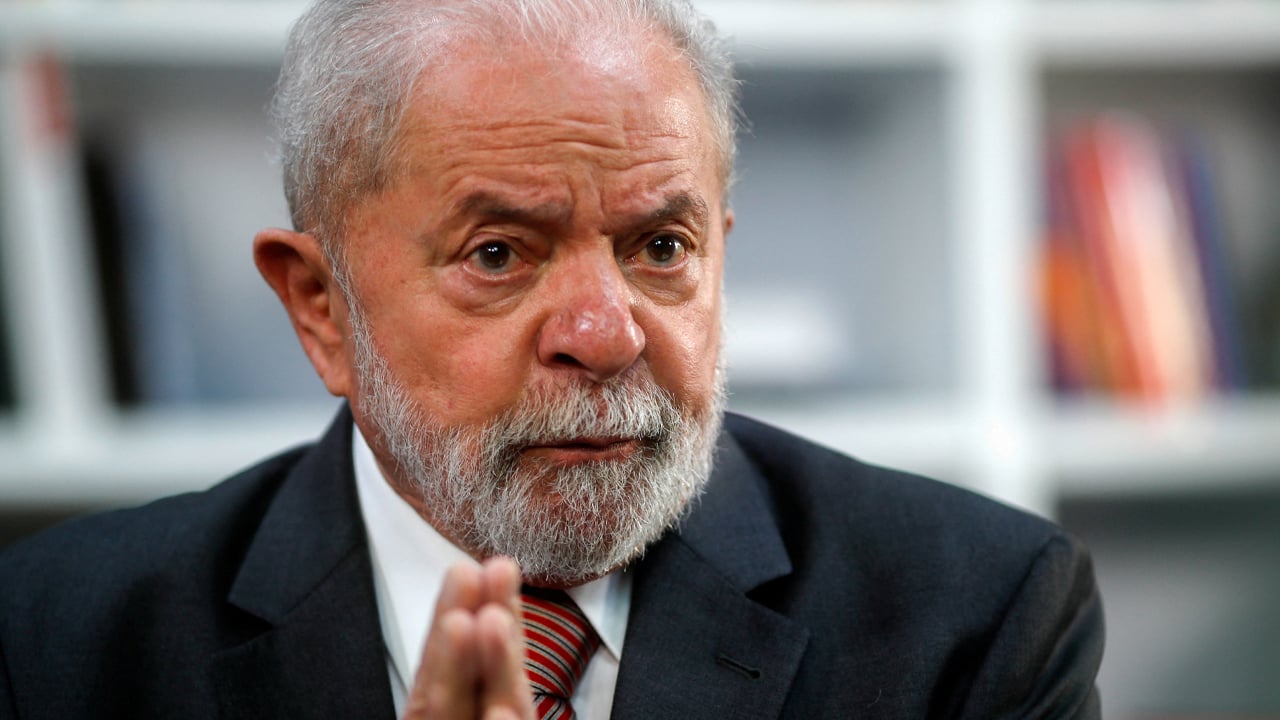
According to Brazil’s president Luiz Inácio Lula da Silva, developing countries should abandon the U.S. dollar and strengthen their own national currencies. During a speech at the New Development Bank in Shanghai, Lula expressed his nightly pondering: “Why do all countries have to base their trade on the dollar?”
Brazil’s President Wants to Reduce the U.S. Dollar’s Global Dominance
Recent discussions have focused on removing the U.S. dollar’s status as the global reserve currency, and this idea is becoming more of a reality in 2023. Speaking at the New Development Bank in Shanghai, also known as the ‘BRICS Bank,’ President Lula insisted that the greenback’s global dominance should end, as reported by the Financial Times.
“Who decided that our currencies were weak or valueless in other countries?” Lula questioned during his speech. “Why can’t a bank like that of the BRICS have a currency to finance trade relations between Brazil and China or Brazil and other countries? It’s difficult because we are unaccustomed [to the thought]. Everyone depends on just one currency,” he added.
Lula’s statements come after China signed a new deal with Brazil and completed its first Liquefied Natural Gas (LNG) payment in yuan. Russia has also been committed to settling trades using other countries’ currencies. Moreover, BRICS members (Brazil, Russia, India, China, and South Africa) are working towards creating a new BRICS-based reserve currency. In Shanghai, Lula voiced his curiosity about the world’s dependence on the greenback.
“I ask myself every night why all countries have to base their trade on the dollar,” Lula emphasized. “Why can’t we trade using our own currencies? Who decided that the dollar would be the dominant currency after the gold standard disappeared?” he inquired.
Financial Times reporters Joe Leahy and Hudson Lockett concluded their report on Lula’s statements by noting that any efforts to undermine the U.S. currency “in the near term will face a substantial challenge.” They highlighted that Brazilian miners regularly engage in dollar-denominated trades. However, officials from Brazil and the BRICS nations are not alone in discussing the potential decline of the dollar’s dominance.
The Philippines’ central bank governor, Felipe Medalla, recently mentioned in an interview that the greenback’s prominence will gradually diminish. “We want a multi-currency world, but so far, other currencies do not have the necessary international markets to support [it]. This is the advantage of the U.S. dollar – there’s a vast market for government securities,” Medalla stated. “I think over time, the dollar will be less and less dominant, but it’s happening very slowly,” he added.
Do you think a shift away from the U.S. dollar as the global reserve currency is inevitable, and what impact do you believe this would have on the global economy and financial systems? Share your thoughts about this subject in the comments section below.
Image Credits: Shutterstock, Pixabay, Wiki Commons
Disclaimer: This article is for informational purposes only. It is not a direct offer or solicitation of an offer to buy or sell, or a recommendation or endorsement of any products, services, or companies. Bitcoin.com does not provide investment, tax, legal, or accounting advice. Neither the company nor the author is responsible, directly or indirectly, for any damage or loss caused or alleged to be caused by or in connection with the use of or reliance on any content, goods or services mentioned in this article.










